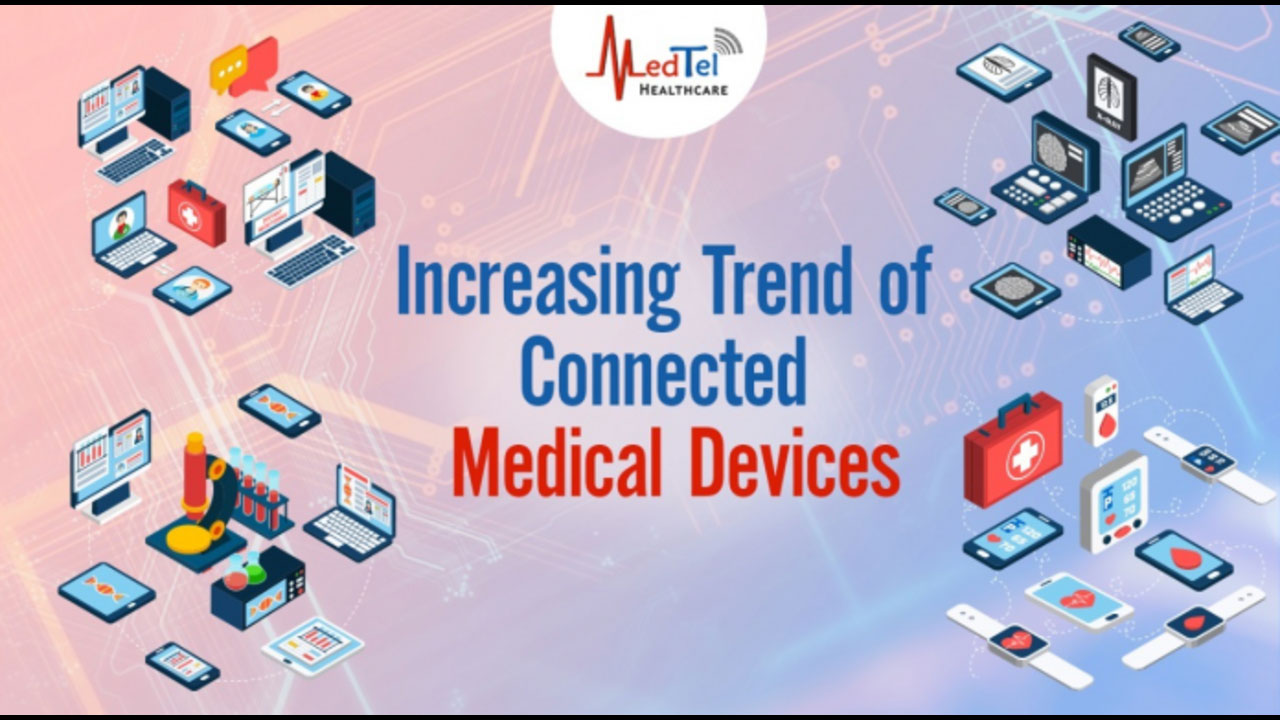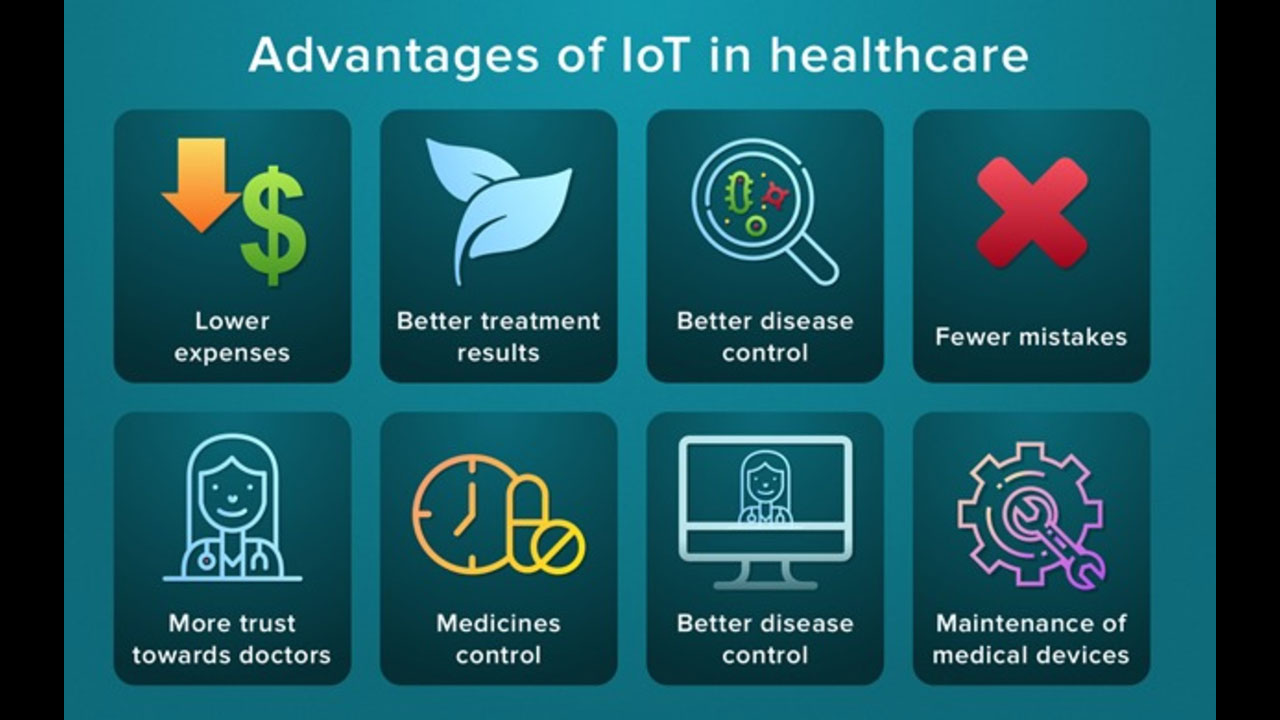Increasing Trend of Connected Medical Devices
Digital healthcare is a broad concept that incorporates concepts that are connected between technology and healthcare. Connected medical devices play a major role when a patient’s health is to be monitored remotely. These devices are truly revolutionizing the healthcare industry by effortlessly connecting patients and healthcare providers with medical information.
Since a decade or so, the technological uprising has witnessed the emergence of digital healthcare devices that allows the patients and providers to lessen the communication gap. Smartphone apps like connected BP monitors, oxygen levels keep track and generate important data. Most of the connected devices are developed with varied capabilities such as real-time monitoring plus high-resolution imaging. This in turn helps to improve patient’s health. With digital health technology, it is possible for patients to receive care from any corner of the globe.
Source: Dell Connected Health Whitepaper
What does Digital Health Include?
It applies to digital transformation in healthcare including mobile health apps (mHealth), wearable devices, telehealth, telemedicine, and electronic medical records (EMR’s). In this situation of global concern, where illness due to aging, pandemics, racial discrimination takes place, the usage of connected medical devices continues to expand its significance.
Further, buffing the flames of alterations, the COVID-19 pandemic has also increased the usage of these medical devices. As per the Forrester Research, the most useful technologies used during this pandemic are remote patient monitoring (RPM) and Telehealth. One more trend that is picking up its pace is the execution of medical sensors. The rising price of healthcare has forced providers to collect medical data via real-time sensors to enhance their decision-making power. Generating excellent algorithms and engaging interfaces for the medical sensors has now become the priority for healthcare providers.
Also Read:- Connected Health Care and Solutions
Connected Medical Devices are Giving Patients and Providers Control on the Health Data
The healthcare providers are using the collected data through connected medical devices to give prompt medication to the patients. The advancement in telemedicine digital health and medical devices are connecting them in a way that more and more valuable information is available to them.
Now, all modern healthcare amenities are at your fingertips. You are capable of getting the better quality care that can enhance your overall well-being. Mobile solutions, mobile apps, wearable devices, and wireless integration are now regularly being used, thereby leading to efficient and resourceful patient healthcare.
Innovation in medical devices helps to save time, enhance accuracy, and efficiency. Such innovations can connect medicine and IoT, mHealth and IoT, and medicine and EMR’s. Precedence Research has estimated that the worldwide digital health market will witness an annual growth rate of approximately 27.9% from the year 2020 to 2027. Moreover, the jump in healthcare applications is also fueling the growth of these devices. North America has a dominant share in the digital health market because of the rising population and high implementation rate of Smartphones. This in turn compels the need for new apps for the healthcare platforms.
In the healthcare sector, the collected data can offer the following advantages:
Reduction of Medication errors: Once patient’s records are analyzed, the software can discover the discrepancies between the patient’s health-related issues and prescriptions. After that, they can notify the patients of proper medication ways.
Aids in Preventive Care: A lot of patients just flock to emergency rooms when actually ill. By using data analysis, they can categorize the kind of patient and widen preventive care measures for them.
Staffing more Precisely: Prior analysis of the patient’s health records can help hospitals as well as clinics to predict admission rates and then accordingly they can improve their staffing appropriately.
Source: Evolve ETF’s
More or less 88% of the healthcare institutions in the US are investing in the RPM system. The best thing about this is that it continues to enhance the healthcare segment immensely in 2021. As per CTA, 68% of healthcare institutions largely like patient monitoring solutions.
Source: Evolve ETF’s
- Enhanced patient outcomes by 49%
- Personalized care by 43%
- Patients care about their health by 42%
- Enhanced compliance rates by 44%
While considering patients, the above-mentioned benefits of RPM offer:
- Quicker access to healthcare services by 42%
- More and more control over the healthcare by 37%
Besides this, the research confirms that approximately 52% of the consumers use RPM solutions successfully ad part of medical treatment if recommended by a healthcare provider.
Take advantage of the latest technology and use it to enhance your way of living. Better data management, data collection, and smarter systems all contribute to a happy and healthy lifestyle. We at MedTel work at our patient’s convenience so that they are in their best health. Our talented healthcare professionals work in a way that they understand the challenges the patients that they are facing and work accordingly.
You can easily get in touch with the customer service representatives to solve all your queries. We will be happy to serve you by answering your queries and assisting you in deciding which connected medical devices are appropriate for you.


